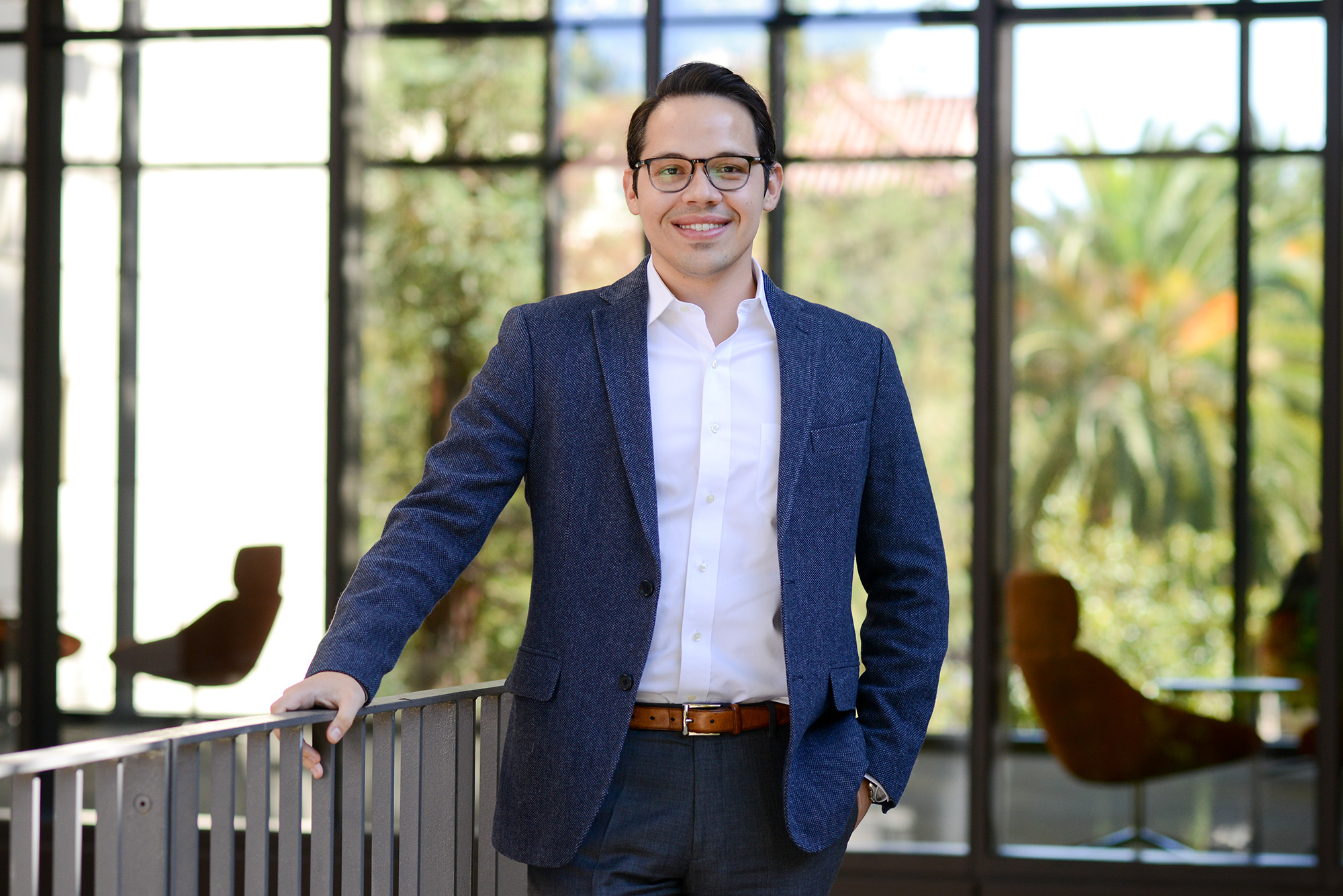New Faculty: Diego Zambrano
It is no exaggeration to say that a political crisis shaped the career of Diego Zambrano, who joined the law school faculty as an assistant professor this fall.
Zambrano grew up in Venezuela, enjoying a tranquil childhood until 1998, when Hugo Chavez assumed control of the country. “As soon as Chavez took over,” says Zambrano, “the country began to deteriorate. Chavez deprofessionalized government institutions, politicized the military, attacked basic freedoms and the press, and hammered the private sector of the economy. Not coincidentally, crime and especially homicide rates then skyrocketed. The humanitarian catastrophe that Venezuela has suffered in the past two years is only the culmination of 18 years of governmental mismanagement and odious policies that have led to terrible food shortages and a total loss of liberty. Chavez hoodwinked the country and devastated Venezuelan democracy.”

IN 2002, CHAVEZ WAS TEMPORARILY REMOVED IN A COUP D’ÉTAT, BUT RETURNED TO POWER only two days later promising revenge and a deepening of his revolution. To protect their son and ensure his access to opportunities that were no longer available in Venezuela, Zambrano’s parents sent him that year, at age 14, to live with an uncle who was teaching Spanish at a private New Hampshire high school. His parents stayed in Venezuela because, as doctors, they felt it was their duty. In stark contrast, Zambrano ended up in a picturesque New England town with friendly faces and little crime.
And that’s when Zambrano’s intellectual curiosity kicked in: “In addition to being a culture shock, this was a critical change of life that affected my world view,” he says. “The differences between Venezuela and the U.S. gnawed at me. I truly wanted to understand, even as a teenager, why democracy collapsed in Venezuela and why it worked in the United States.”
Thus began his deep interest in politics and U.S. history, international and economic development, and U.S. government. Zambrano pursued these subjects throughout college at the University of Virginia. He seriously considered getting a history PhD, but when his interests took a turn toward legal systems design and the rule of law, he decided to go to law school and become an academic.
At Harvard Law School, Zambrano focused on non-doctrinal courses, but it was civil procedure that really captured his attention.
“That class was the least intuitive for me, and I loved it. In the U.S. we do this thing that no other country does: We empower private plaintiffs to enforce, through civil litigation, our most important statutes. Statutory private rights of action and our procedural rules are thus gatekeepers to the enforcement of basic freedoms and regulations, like civil rights or environmental restrictions. Unlike other countries, civil procedure is consequently critical in the U.S. But this private enforcement system has costs and benefits, and that’s one area I grapple with in my scholarship.”
While at Harvard, Zambrano also became interested in transnational litigation and arbitration, which led him to join the New York office of Cleary Gottlieb in 2013. There he hit the jackpot—a Supreme Court case about discovery in which Cleary represented Argentina against a hedge fund. “It was perfectly aligned with my scholarly interests and background,” says Zambrano, “transnational litigation involving a Latin American sovereign and civil procedure.”
Zambrano drew from this Supreme Court case to write an article on transnational litigation and discovery. This piece allowed him to seriously think about academia.
After three years in practice, Zambrano left Cleary to become a Bigelow Fellow at the University of Chicago Law School, where for two years he taught legal research and writing and transnational litigation. “I take my teaching responsibilities very seriously both in and out of the classroom,” he says. “I grew up in the U.S. without my parents, so my teachers played a critical role in my life.”
Zambrano now brings his commitment to students and scholarly passion to SLS, where he will teach Civil Procedure, Transnational Litigation, and Advanced Civil Procedure. He is particularly excited about the faculty’s interdisciplinary approach to civil procedure, citing professors David Freeman Engstrom, JD ’02, Amalia Kessler (MA ’96, PhD ’01), Norman Spaulding, JD ’97, and Shirin Sinnar, JD ’03, as inspirational in this regard.
Engstrom is likewise glowing in his praise of Zambrano: “For a young scholar at the very start of his teaching career, Diego’s work in civil procedure shows impressive sweep, combining command of case law, the economics of court systems, theories of federalism, and the most granular details of the civil rulemaking process. Even better, Diego has that rare ability to talk about, and then quickly shape up, new ideas. He’s a unique talent, and we’re all lucky to call him a Stanford colleague.” SL
